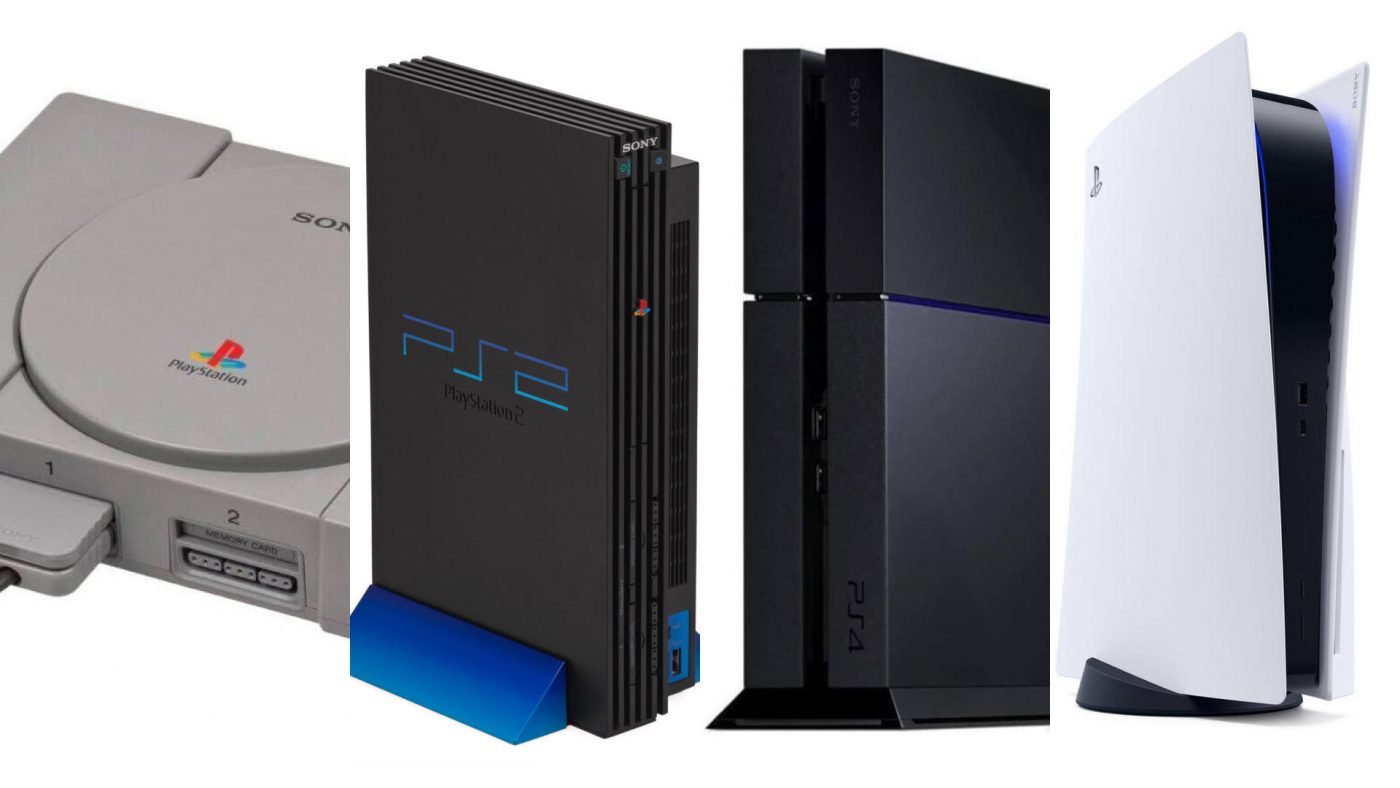Tech Review
The History of Playstation
The history of PlayStation is a journey that revolutionised the gaming industry, combining cutting-edge technology with innovative gameplay experiences. It began as a collaboration between Sony and Nintendo in the late 1980s to create a CD-ROM add-on for the Super Nintendo Entertainment System (SNES). However, this partnership dissolved, leading Sony to independently develop its gaming console, which would eventually become the PlayStation.
- PlayStation (PS1):
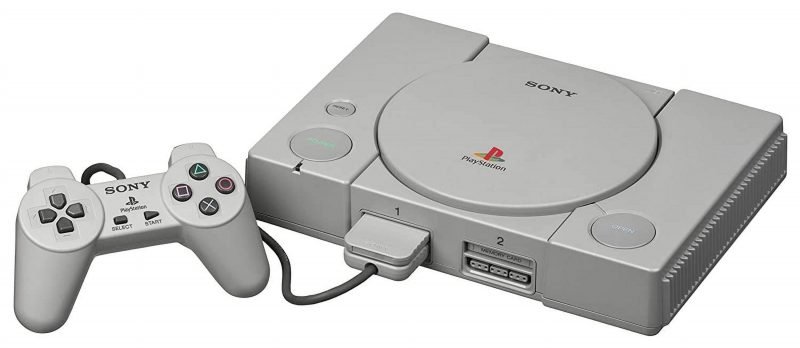
The PlayStation 1, often referred to simply as the PS1, holds a special place in gaming history as the console that revolutionised the industry. Released in December 1994 in Japan and subsequently in North America and Europe in 1995, the PS1 marked Sony’s entry into the gaming market and set the stage for the PlayStation brand’s dominance in the years to come.
Hardware and Design:
The PS1 boasted cutting-edge hardware for its time, featuring a 32-bit RISC processor, 2 MB of RAM, and a dedicated graphics processor capable of rendering 3D graphics. Its sleek and futuristic design, with its iconic grey colour scheme and compact disc tray, distinguished it from its cartridge-based competitors. The inclusion of CD-ROM technology allowed for larger game storage capacity and facilitated the use of full-motion video and high-quality audio, enhancing the overall gaming experience.
Game Library:
One of the key factors contributing to the PS1’s success was its extensive and diverse game library. From iconic franchises like “Final Fantasy,” “Metal Gear Solid,” and “Resident Evil” to innovative titles such as “Parasite Eve” and “Tekken,” the PS1 offered something for every type of gamer. These games pushed the boundaries of storytelling, gameplay mechanics, and graphical fidelity, captivating players and fueling the console’s popularity.
Innovative Features:
Beyond its hardware capabilities and game library, the PS1 introduced several innovative features that set it apart from its competitors. The inclusion of a memory card for saving game progress allowed players to pick up where they left off without relying on passwords or codes. The PlayStation also supported multiplayer gaming through the use of additional controllers, paving the way for social gaming experiences.
Cultural Impact:
The PS1’s impact on popular culture cannot be overstated. It played a significant role in mainstreaming video games as a form of entertainment for all ages, transcending the traditional gamer demographic. The console’s success helped establish Sony as a major player in the gaming industry, challenging established competitors like Nintendo and Sega.
Legacy:
More than two decades after its release, the PS1 continues to hold a special place in the hearts of gamers around the world. Its iconic design, groundbreaking games, and contributions to the evolution of gaming technology ensure that it will be remembered as a landmark moment in gaming history.
Conclusion:
In conclusion, the PlayStation 1 was more than just a gaming console; it was a cultural phenomenon that revolutionised the gaming industry. Its powerful hardware, diverse game library, and innovative features laid the foundation for future generations of PlayStation consoles and cemented Sony’s place as a leader in the gaming world. Even as gaming technology continues to advance, the PS1 remains a timeless classic that continues to captivate and inspire gamers of all ages.
- PlayStation 2 (PS2):
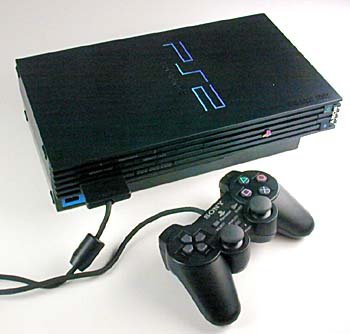
The PlayStation 2 (PS2) stands as a monumental milestone in the history of gaming, representing not just a console but an era-defining cultural phenomenon. Released in March 2000, the PS2 built upon the success of its predecessor and exceeded all expectations, becoming the best-selling gaming console of all time.
Hardware and Design:
The PS2 boasted impressive hardware capabilities for its time, featuring a powerful Emotion Engine processor, 32 MB of RAM, and a Graphics Synthesizer capable of rendering stunning graphics. Its sleek, black exterior design signalled a departure from the grey aesthetic of the original PlayStation, exuding a sense of sophistication and modernity.
Game Library:
One of the defining strengths of the PS2 was its unparalleled game library, which featured a vast array of genres and experiences. From groundbreaking titles like “Grand Theft Auto: San Andreas” and “Shadow of the Colossus” to beloved franchises such as “Final Fantasy,” “Metal Gear Solid,” and “Gran Turismo,” the PS2 offered something for every type of gamer. Its expansive library ensured that players were consistently engaged and entertained, contributing to the console’s enduring popularity.
Multimedia Capabilities:
Beyond gaming, the PS2 also served as a multimedia powerhouse, featuring a built-in DVD player that helped popularise the format and transform the console into a central entertainment hub for households worldwide. This versatility further enhanced the value proposition of the PS2, appealing to a broader audience beyond dedicated gamers.
Innovative Features:
The PS2 introduced several innovative features that set it apart from its competitors. The inclusion of backward compatibility with PlayStation games allowed players to enjoy their existing library of games on the new console, ensuring a smooth transition for longtime PlayStation fans. Additionally, the introduction of the DualShock 2 controller, with its improved ergonomic design and analog buttons, enhanced gameplay immersion and control precision.
Cultural Impact:
The PS2’s cultural impact cannot be overstated. It played a pivotal role in shaping the gaming landscape of the early 2000s and beyond, influencing popular culture and establishing gaming as a mainstream form of entertainment. Its widespread success helped solidify Sony’s dominance in the gaming industry and set a new standard for excellence in console gaming.
Legacy:
Even decades after its release, the PS2 continues to hold a special place in the hearts of gamers worldwide. Its timeless classics and groundbreaking innovations ensure that it remains a cherished piece of gaming history, with a legacy that continues to inspire future generations of gamers and game developers alike.
Conclusion:
In conclusion, the PlayStation 2 stands as a testament to the enduring power of innovation and excellence in gaming. Its groundbreaking hardware, expansive game library, and cultural impact have left an indelible mark on the industry, shaping the future of gaming for years to come. As a symbol of gaming excellence, the PS2 remains a beloved and iconic console that will be remembered fondly by generations of gamers.
- PlayStation 3 (PS3):
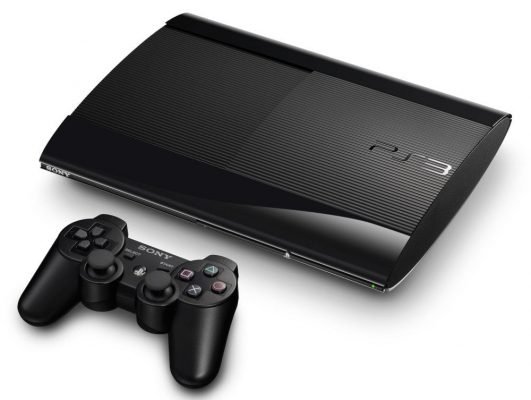
The PlayStation 3 (PS3), released in November 2006, marked another significant milestone in Sony’s gaming legacy. With its powerful hardware, multimedia capabilities, and online services, the PS3 aimed to push the boundaries of gaming and entertainment, albeit facing initial challenges in adoption.
Hardware and Design:
At its core, the PS3 boasted impressive hardware specifications, including a custom-designed Cell processor, NVIDIA RSX GPU, and 256 MB of system RAM. These components enabled the console to deliver stunning graphics and immersive gameplay experiences, setting a new standard for realism and detail. The sleek and stylish design of the PS3, with its glossy finish and iconic curved profile, reflected Sony’s commitment to elegance and sophistication in gaming hardware.
Game Library:
The PS3’s game library featured a diverse array of titles, ranging from blockbuster franchises to indie gems. Games like “Uncharted,” “The Last of Us,” and “Metal Gear Solid 4” showcased the console’s graphical prowess and storytelling capabilities, captivating players with immersive narratives and breathtaking visuals. Additionally, the inclusion of PlayStation Network (PSN) enabled digital distribution of games, expanding the accessibility and variety of gaming experiences available to players.
Multimedia Capabilities:
One of the standout features of the PS3 was its multimedia functionality, including a built-in Blu-ray disc player. This integration of high-definition media playback elevated the PS3 beyond a mere gaming console, positioning it as a comprehensive entertainment centre for the living room. The ability to stream content from services like Netflix and Hulu further enhanced the console’s appeal, catering to a broader audience of multimedia enthusiasts.
Online Services:
The introduction of PlayStation Network (PSN) transformed the PS3 into a connected gaming platform, offering online multiplayer, digital downloads, and social features. PlayStation Plus, Sony’s premium subscription service, provided access to free monthly games, exclusive discounts, and cloud storage for game saves, enhancing the value proposition for subscribers. Despite facing initial challenges with network stability and security, PSN evolved into a robust online ecosystem, fostering community engagement and competitive gaming experiences.
Legacy:
While the PS3 faced hurdles in its early years, including a high launch price and complex architecture, it ultimately established itself as a formidable gaming console with a lasting legacy. Its powerful hardware, diverse game library, and multimedia capabilities laid the groundwork for future iterations of the PlayStation brand, influencing the evolution of gaming and entertainment.
Conclusion:
In conclusion, the PlayStation 3 represented a bold step forward for Sony in the gaming industry, combining cutting-edge technology with innovative features to deliver an unparalleled entertainment experience. Despite facing challenges in its early years, the PS3’s impact on gaming culture and its contributions to the evolution of multimedia entertainment cannot be overstated. As a symbol of innovation and excellence, the PS3 continues to hold a special place in the hearts of gamers and remains an iconic chapter in the history of PlayStation.
- PlayStation 4 (PS4):
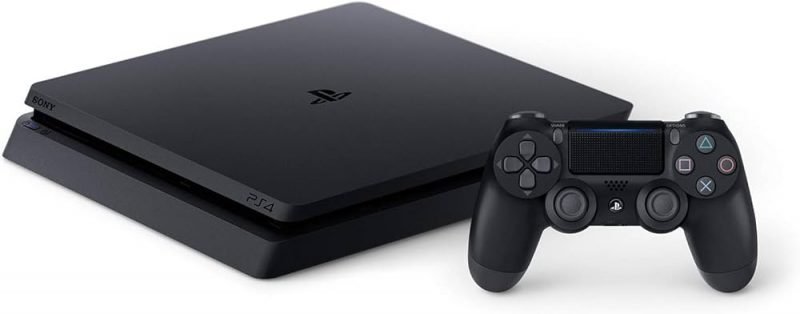
Released in November 2013, the PlayStation 4 (PS4) represents Sony’s commitment to delivering cutting-edge gaming experiences while embracing the changing landscape of digital entertainment. With its powerful hardware, robust online services, and exceptional lineup of exclusive games, the PS4 has solidified its position as one of the most successful gaming consoles of all time.
Hardware and Design:
The PS4 boasts impressive hardware specifications, featuring a custom-designed AMD Jaguar processor, 8 GB of GDDR5 RAM, and a dedicated AMD Radeon GPU. This powerful hardware enables the console to deliver stunning graphics and smooth performance, immersing players in rich and detailed gaming worlds. The sleek and minimalist design of the PS4, with its angular profile and matte finish, exudes a sense of sophistication and modernity, complementing any home entertainment setup.
Game Library:
One of the standout features of the PS4 is its exceptional lineup of exclusive games, spanning a wide range of genres and experiences. From critically acclaimed titles like “God of War,” “Spider-Man,” and “Horizon Zero Dawn” to indie darlings such as “Journey” and “Celeste,” the PS4 offers something for every type of gamer. These exclusive titles, combined with a diverse selection of third-party releases, ensure that players always have a wealth of gaming experiences to explore and enjoy.
Online Services:
The PS4’s online services, including PlayStation Network (PSN) and PlayStation Plus, play a crucial role in enhancing the gaming experience. PSN provides a robust platform for digital downloads, online multiplayer, and social features, allowing players to connect with friends and fellow gamers from around the world. PlayStation Plus offers additional benefits, such as free monthly games, exclusive discounts, and cloud storage for game saves, further enriching the value proposition for subscribers.
Innovative Features:
The PS4 introduced several innovative features that enhance gameplay immersion and convenience. The DualShock 4 controller, with its ergonomic design, touchpad, and integrated light bar, offers precise control and intuitive functionality. The Share button allows players to capture and share screenshots and video clips of their gameplay experiences, fostering community engagement and creativity. Remote Play and PlayStation Now expand the accessibility of games, enabling players to stream and play titles on compatible devices, including PCs and smartphones.
Legacy:
As the successor to the PlayStation 3, the PS4 has left an indelible mark on the gaming industry and gaming culture. Its powerful hardware, exceptional lineup of exclusive games, and robust online services have set a new standard for gaming excellence, influencing the future direction of the PlayStation brand and shaping the evolution of gaming as a whole. The PS4’s legacy will continue to be celebrated by gamers and industry professionals alike for years to come.
Conclusion:
In conclusion, the PlayStation 4 represents the pinnacle of gaming technology and innovation, delivering unparalleled gaming experiences that redefine what is possible in the world of interactive entertainment. With its powerful hardware, exceptional lineup of exclusive games, and robust online services, the PS4 has firmly established itself as a must-have console for gamers of all ages and backgrounds. As Sony continues to push the boundaries of gaming with the PlayStation brand, the PS4 will be remembered as a shining example of gaming excellence in the modern era.
- PlayStation 5 (PS5):
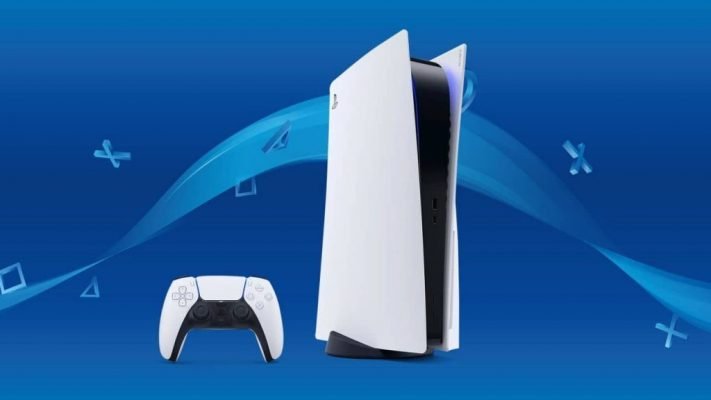
The PlayStation 5 (PS5), released in November 2020, represents a monumental leap forward in gaming technology and innovation. With its cutting-edge hardware, lightning-fast load times, immersive DualSense controller, and expansive lineup of exclusive titles, the PS5 has redefined what it means to be a gaming console in the modern era.
Hardware and Design:
At the heart of the PS5 lies a custom-designed AMD Ryzen Zen 2 processor, paired with an AMD Radeon RDNA 2 GPU and ultra-fast SSD storage. This powerful hardware enables the console to deliver stunning 4K visuals, smooth performance, and lightning-fast load times, immersing players in breathtaking gaming experiences like never before. The sleek and futuristic design of the PS5, with its bold curves and striking black-and-white colour scheme, makes a bold statement and serves as a focal point for any gaming setup.
Game Library:
The PS5’s game library features a diverse array of titles, including highly anticipated exclusives, beloved franchises, and indie gems. From groundbreaking titles like “Demon’s Souls” and “Ratchet & Clank: Rift Apart” to multi-platform hits like “Spider-Man: Miles Morales” and “Returnal,” the PS5 offers something for every type of gamer. These exclusive titles, combined with backward compatibility for most PS4 games, ensure that players have a wealth of gaming experiences to explore and enjoy on their PS5.
DualSense Controller:
One of the standout features of the PS5 is its innovative DualSense controller, which offers immersive haptic feedback and adaptive triggers that dynamically adjust resistance based on in-game actions. This innovative technology enhances gameplay immersion, allowing players to feel the tension of a bowstring or the rumble of a roaring engine like never before. The built-in microphone and speaker further enhance the gaming experience, enabling seamless communication with friends and teammates.
User Experience:
The PS5’s user experience is streamlined and intuitive, with a redesigned user interface that prioritises speed and accessibility. The new Control Center provides quick access to essential features, such as game invites, friends list, and system settings, while the integrated Activities feature offers in-game hints and objectives to help players progress through their favourite games. The addition of 3D audio support further enhances immersion, providing spatial audio that envelops players in rich and lifelike soundscapes.
Legacy:
As the latest addition to the PlayStation family, the PS5 has already made a significant impact on the gaming industry and gaming culture. Its powerful hardware, innovative features, and exceptional lineup of exclusive titles have cemented its place as a must-have console for gamers around the world. The PS5’s legacy will continue to grow and evolve as Sony continues to push the boundaries of gaming with future updates and releases.
Conclusion:
In conclusion, the PlayStation 5 represents the pinnacle of gaming technology and innovation, delivering unparalleled gaming experiences that push the boundaries of what is possible in the world of interactive entertainment. With its powerful hardware, immersive DualSense controller, and expansive lineup of exclusive titles, the PS5 has set a new standard for gaming excellence and solidified its place as the ultimate destination for gamers seeking the best gaming experiences available. As Sony continues to innovate and expand the PlayStation ecosystem, the PS5 will undoubtedly remain at the forefront of gaming for years to come.

